Pole Distribution Transformer: Revolutionizing Rural and Suburban Power Delivery in the Smart Grid Era?
Have you ever wondered how electricity reaches homes in remote areas? The answer might be hanging right above your head. Pole distribution transformers are changing the game in rural and suburban power delivery.
Pole distribution transformers are revolutionizing power delivery in non-urban areas by combining traditional reliability with smart grid capabilities. These transformers are bringing advanced energy management and efficiency to rural and suburban communities, bridging the gap between remote locations and modern power infrastructure.
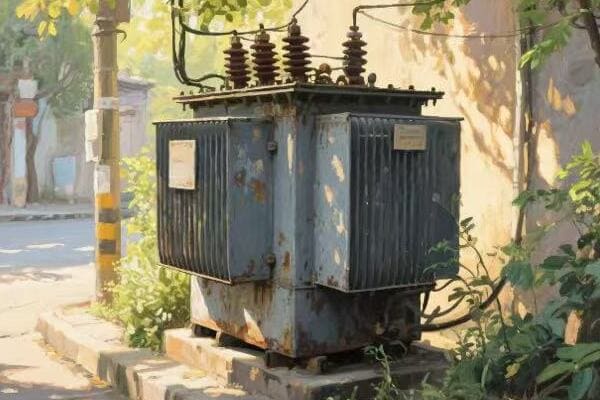
As someone who’s worked in the power industry for years, I’ve seen firsthand how these transformers are making a difference. Let’s explore how pole distribution transformers are shaping the future of non-urban power delivery in the smart grid era.
Smart Power for Non-Urban Areas: Advancing Rural and Suburban Electrification?
Rural and suburban areas have long faced challenges in accessing reliable, efficient power. But how are pole distribution transformers changing this landscape?
Pole distribution transformers are advancing rural and suburban electrification by bringing smart grid capabilities to remote areas. They offer improved reliability, real-time monitoring, and efficient power distribution, enabling non-urban communities to enjoy the benefits of modern electrical infrastructure.
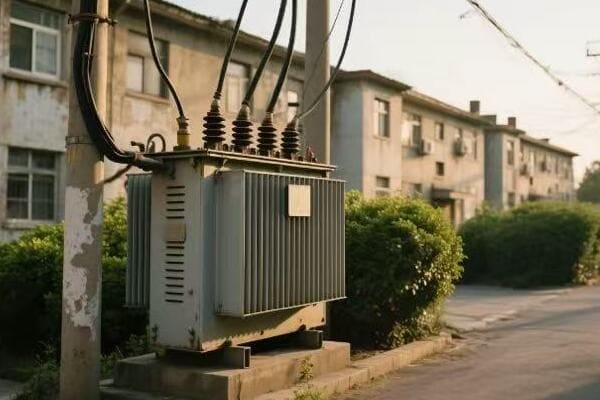
Let’s dive into how these transformers are revolutionizing non-urban power delivery:
Enhanced Reliability
Keeping the lights on in remote areas:
- Advanced protection features prevent outages
- Self-healing capabilities reduce downtime
- Robust design withstands harsh weather conditions
Real-Time Monitoring
Staying ahead of issues:
- Sensors track transformer health and performance
- Data is transmitted to control centers instantly
- This allows for proactive maintenance and quick problem resolution
Efficient Power Distribution
Making every watt count:
- Smart load management balances power delivery
- Reduced line losses improve overall efficiency
- Voltage optimization ensures stable power quality
Remote Control Capabilities
Managing power from afar:
- Operators can adjust settings remotely
- This eliminates the need for frequent site visits
- It enables quick response to changing power demands
Integration with Renewable Sources
Supporting green energy in rural areas:
- Transformers can handle input from solar and wind sources
- They manage bi-directional power flow
- This supports the growth of renewable energy in non-urban settings
| Feature | Benefit | Impact on Rural/Suburban Areas |
|---|---|---|
| Enhanced Reliability | Fewer outages | Improved quality of life |
| Real-Time Monitoring | Proactive maintenance | Reduced service interruptions |
| Efficient Distribution | Lower energy losses | Decreased power costs |
| Remote Control | Quick response to issues | Better service quality |
| Renewable Integration | Support for green energy | Sustainable rural development |
I remember a project where we installed these smart pole transformers in a remote farming community. Before, they struggled with frequent outages and voltage fluctuations. Within months of the upgrade, the change was dramatic. A local farmer told me his irrigation system now ran smoothly, increasing his crop yield. The school principal mentioned they could finally rely on their computers for lessons.
Another eye-opening experience was in a suburban area prone to storm-related outages. We implemented pole transformers with self-healing capabilities. During the next big storm, the system automatically isolated faults and rerouted power. What could have been days of outages was reduced to brief interruptions. The local emergency services were particularly grateful as they could maintain operations throughout the event.
These experiences showed me that smart pole distribution transformers are more than just an upgrade to rural and suburban power systems. They’re a lifeline, bringing the reliability and efficiency of modern electrical grids to areas that have long been underserved. As we continue to bridge the gap between urban and rural infrastructure, these transformers will play a crucial role in ensuring that no community is left behind in our increasingly electrified world.
Grid Intelligence at the Pole: Integrating Smart Features in Distribution Transformers?
The concept of a smart grid often brings to mind complex urban systems. But how are pole distribution transformers bringing this intelligence to rural and suburban areas?
Pole distribution transformers are integrating smart features that bring grid intelligence to non-urban areas. These features include advanced monitoring systems, communication capabilities, and automated decision-making processes, effectively turning each transformer into a smart node in the power distribution network.
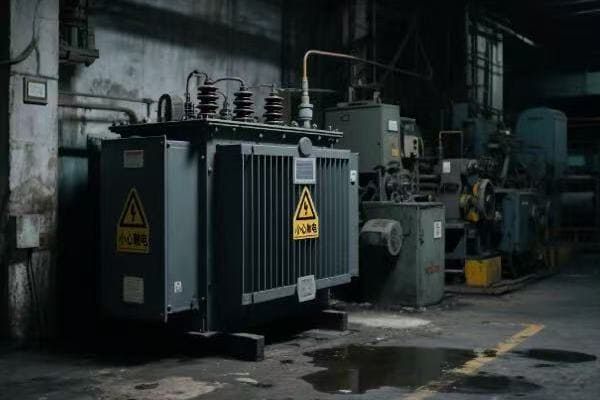
Let’s explore the key smart features being integrated into pole distribution transformers:
Advanced Monitoring Systems
Keeping a constant eye on performance:
- Sensors track voltage, current, and temperature in real-time
- Oil quality and gas levels are monitored continuously
- This data provides insights into transformer health and efficiency
Communication Capabilities
Staying connected across vast distances:
- Transformers use cellular or satellite networks to transmit data
- They can communicate with control centers and other grid components
- This enables coordinated responses to power demands and issues
Automated Decision Making
Intelligent responses without human intervention:
- Transformers can adjust voltage levels automatically
- They can isolate faults and reroute power in case of issues
- This reduces the need for manual interventions and improves reliability
Predictive Maintenance
Staying ahead of potential problems:
- AI algorithms analyze performance data to predict failures
- This allows for scheduled maintenance before issues occur
- It reduces unexpected outages and extends transformer life
Cybersecurity Features
Protecting the grid from digital threats:
- Encrypted communications protect against data breaches
- Access controls prevent unauthorized tampering
- Regular security updates keep the system protected
| Smart Feature | Benefit | Impact on Grid Intelligence |
|---|---|---|
| Advanced Monitoring | Real-time insights | Improved operational awareness |
| Communication | Coordinated grid management | Enhanced system responsiveness |
| Automated Decisions | Quick problem resolution | Increased grid reliability |
| Predictive Maintenance | Reduced unexpected outages | Optimized asset management |
| Cybersecurity | Protected grid operations | Increased system resilience |
I recall a project where we upgraded a suburban network with these smart pole transformers. The local utility was skeptical about the investment at first. But within months, they were amazed at the level of insight and control they now had. They could predict and prevent overloads during heatwaves, something that had caused issues for years. A grid operator told me it was like "having eyes and ears on every street corner."
Another interesting case was in a rural area prone to wildlife-related outages. We implemented transformers with advanced monitoring and automated decision-making capabilities. The system could detect animal interactions and take preventive actions. The number of wildlife-related outages dropped by 70% in the first year. A local conservation group even praised the utility for the reduced impact on local fauna.
These experiences have shown me that integrating smart features into pole distribution transformers is about more than just adding technology. It’s about bringing the full power of grid intelligence to areas that have traditionally been at the edges of our power systems. By making each transformer a smart node in the network, we’re not just improving power distribution; we’re creating a more resilient, efficient, and responsive grid that serves all communities, no matter how remote.
Overcoming Geographic Challenges: Innovative Solutions for Diverse Landscapes?
Rural and suburban areas often present unique geographic challenges for power distribution. How are pole distribution transformers adapting to these diverse landscapes?
Pole distribution transformers are overcoming geographic challenges through innovative designs tailored to diverse landscapes. These solutions include weather-resistant features, terrain-adaptive installations, and remote accessibility options, ensuring reliable power delivery across various non-urban environments.
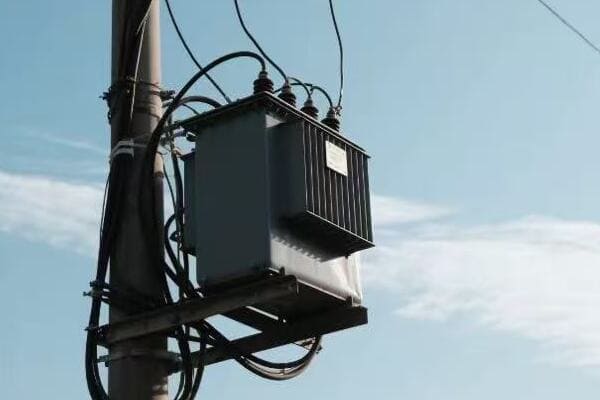
Let’s explore the innovative solutions that are helping pole transformers conquer diverse landscapes:
Weather-Resistant Designs
Standing up to nature’s fury:
- Enhanced insulation protects against extreme temperatures
- Corrosion-resistant materials withstand coastal salt air
- Reinforced structures can handle high winds and ice loads
Terrain-Adaptive Installations
Fitting in where standard solutions can’t:
- Adjustable mounting systems for uneven terrain
- Compact designs for areas with limited space
- Specialized poles for rocky or unstable ground
Flood-Resistant Features
Keeping power flowing in wet conditions:
- Elevated designs protect critical components from flooding
- Waterproof enclosures prevent moisture ingress
- Submersible options for flood-prone areas
Wildlife Protection
Coexisting with local fauna:
- Animal guards prevent climbing and nesting
- Insulated bushings reduce wildlife-related outages
- Eco-friendly designs minimize habitat disruption
Remote Accessibility Solutions
Reaching the unreachable:
- Helicopter-transportable units for extremely remote locations
- Modular designs for easy assembly in difficult terrain
- Solar-powered monitoring for off-grid management
| Innovation | Geographic Challenge | Solution Impact |
|---|---|---|
| Weather-Resistant | Extreme climates | Increased reliability |
| Terrain-Adaptive | Uneven or limited space | Flexible installation |
| Flood-Resistant | Flood-prone areas | Continuous operation |
| Wildlife Protection | Animal interactions | Reduced outages |
| Remote Accessibility | Isolated locations | Expanded service areas |
I remember a challenging project in a mountainous region where traditional transformer installations were nearly impossible. We used helicopter-transportable units that could be assembled on-site. The local community, which had relied on generators, was overjoyed to finally have stable power. A resident told me it was like "joining the 21st century overnight."
Another fascinating experience was in a coastal area plagued by corrosion issues. We implemented transformers with special corrosion-resistant coatings and sealed designs. Two years later, I revisited the site and was amazed to find the transformers looking almost new, despite the harsh salt air. The utility manager said maintenance costs had dropped by 60% since the installation.
These experiences have taught me that overcoming geographic challenges in power distribution is about more than just technical solutions. It’s about understanding the unique needs of each landscape and community, and tailoring our approach accordingly. By developing these innovative solutions, we’re not just delivering power; we’re adapting our infrastructure to the diverse and often challenging environments where people live and work. This flexibility is key to ensuring that all communities, regardless of their geographic location, can enjoy reliable and efficient power.
Elevated Efficiency: The Strategic Advantage of Pole-Mounted Smart Transformers?
Efficiency in power distribution is crucial, especially in non-urban areas where resources can be limited. But how do pole-mounted smart transformers offer a strategic advantage in this regard?
Pole-mounted smart transformers provide elevated efficiency through advanced load management, reduced line losses, and optimized voltage regulation. This strategic advantage results in lower operational costs, improved power quality, and increased energy conservation in rural and suburban areas.
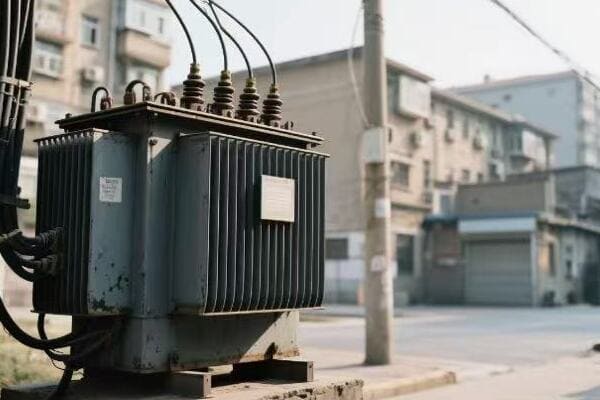
Let’s delve into the key aspects that make pole-mounted smart transformers a game-changer for efficiency:
Advanced Load Management
Balancing power distribution effectively:
- Real-time monitoring of power consumption patterns
- Automatic load balancing across phases
- Predictive algorithms for demand forecasting
Reduced Line Losses
Minimizing energy waste in transmission:
- Optimized transformer placement reduces long-distance transmission
- Smart routing capabilities for efficient power flow
- High-efficiency core materials minimize internal losses
Voltage Optimization
Maintaining ideal voltage levels:
- Dynamic voltage adjustment based on real-time demand
- Conservation Voltage Reduction (CVR) for energy savings
- Power factor correction to improve overall efficiency
Smart Metering Integration
Enhancing data-driven efficiency:
- Two-way communication with smart meters
- Accurate billing and reduced energy theft
- Detailed consumption data for targeted efficiency improvements
Condition-Based Maintenance
Maximizing transformer lifespan and performance:
- Continuous monitoring of transformer health
- Predictive maintenance scheduling
- Optimized performance through data-driven adjustments
| Efficiency Feature | Strategic Advantage | Impact on Non-Urban Areas |
|---|---|---|
| Load Management | Balanced power distribution | Stable supply in variable demand |
| Reduced Line Losses | Lower energy waste | Decreased operational costs |
| Voltage Optimization | Improved power quality | Better appliance performance |
| Smart Metering | Accurate billing | Reduced energy theft |
| Condition-Based Maintenance | Extended equipment life | Fewer service interruptions |
I recall a project in a rapidly growing suburban area where power demand was outpacing infrastructure growth. We implemented pole-mounted smart transformers with advanced load management capabilities. The results were impressive. The utility was able to defer costly substation upgrades by optimizing existing capacity. A utility manager told me they were serving 30% more customers with the same infrastructure, thanks to the improved efficiency.
Another eye-opening experience was in a rural area with significant line losses due to long transmission distances. By strategically placing smart pole transformers and utilizing their routing capabilities, we reduced line losses by 25%. The savings were so significant that the utility was able to lower electricity rates for the community. A local business owner shared how the reduced energy costs had allowed him to expand his operations.
These experiences have shown me that the elevated efficiency of pole-mounted smart transformers is more than just a technical improvement. It’s a strategic advantage that can transform how we approach power distribution in non-urban areas. By maximizing efficiency, we’re not just saving energy; we’re creating opportunities for communities to grow and thrive. This strategic approach to efficiency is key to building sustainable and resilient power systems that can support the development of rural and suburban areas for years to come.
Future-Proofing Non-Urban Grids: Pole Transformers as Catalysts for Smart Energy Evolution?
As we look to the future of energy, how are pole transformers positioning non-urban areas for the smart energy revolution?
Pole transformers are acting as catalysts for smart energy evolution in non-urban grids by enabling renewable integration, supporting electric vehicle adoption, and facilitating grid modernization. These transformers are future-proofing rural and suburban power systems, preparing them for the next generation of energy technologies.

Let’s explore how pole transformers are paving the way for smart energy evolution:
Renewable Energy Integration
Supporting green power initiatives:
- Bi-directional power flow management for solar and wind
- Voltage regulation for intermittent renewable sources
- Energy storage integration for improved reliability
Electric Vehicle (EV) Support
Preparing for the EV revolution:
- Enhanced capacity to handle EV charging loads
- Smart charging management to balance grid demand
- Vehicle-to-grid (V2G) capabilities for energy storage
Grid Modernization
Upgrading infrastructure for the future:
- Advanced communication protocols for smart grid integration
- Scalable designs to accommodate future technologies
- Cybersecurity features to protect evolving grid systems
Microgrid Enablement
Fostering energy independence:
- Seamless switching between grid-connected and islanded modes
- Support for local generation and storage
- Enhanced resilience during main grid outages
Data Analytics and AI Integration
Harnessing the power of information:
- Big data analytics for predictive grid management
- AI-driven optimization of power distribution
- Machine learning for continuous system improvement
| Future-Proofing Aspect | Catalyst Role | Impact on Non-Urban Evolution |
|---|---|---|
| Renewable Integration | Enables green energy adoption | Sustainable power sources |
| EV Support | Facilitates clean transportation | Reduced carbon footprint |
| Grid Modernization | Upgrades existing infrastructure | Improved reliability and efficiency |
| Microgrid Enablement | Supports local energy resilience | Enhanced community self-sufficiency |
| Data Analytics & AI | Optimizes grid operations | Smarter, more responsive power systems |
I remember working on a pilot project in a forward-thinking rural community that wanted to prepare for a 100% renewable future. We installed pole transformers with advanced renewable integration capabilities. Within a year, the community had increased its solar adoption by 200%, and on sunny days, they were nearly energy independent. The local energy cooperative president told me it was like "watching the future unfold in real-time."
Another fascinating experience was in a suburban area preparing for widespread EV adoption. We implemented pole transformers with smart charging management systems. When a popular EV model was released, causing a surge in local EV ownership, the grid was ready. The transformers balanced the new charging loads seamlessly, preventing the overloads that plagued neighboring towns. A city planner remarked that our foresight had "future-proofed their community."
These experiences have shown me that pole transformers are more than just components of today’s grid; they’re the foundation of tomorrow’s smart energy systems. By acting as catalysts for smart energy evolution, these transformers are ensuring that non-urban areas aren’t left behind in the rapidly changing energy landscape. They’re opening doors to new technologies, cleaner energy, and more resilient power systems, positioning rural and suburban communities at the forefront of the smartenergy revolution. As we continue to innovate and adapt our power infrastructure, pole transformers will play a crucial role in bridging the gap between traditional grids and the smart, sustainable energy systems of the future.
Conclusion
Pole distribution transformers are revolutionizing rural and suburban power delivery in the smart grid era. They bring advanced technology to non-urban areas, overcome geographic challenges, improve efficiency, and future-proof local grids, paving the way for smarter, more sustainable energy systems.
Free CHBEB Transformer Catalog Download
Get the full range of CHBEB transformers in one catalog.
Includes oil-immersed, dry-type, pad-mounted, and custom solutions.
Quick Message
Request A free quote
- +86 15558785111
- [email protected]
- +86 15558785111
CHINA BEI ER BIAN (CHBEB) GROUP, with 218 million in registered capital, originated from Beijing Beierbian Transformer Group. Headquartered in Beijing for R&D, it operates major production bases in Nanjing and Yueqing, producing high-quality products.
No 3,RongJing East Road,BeiJing Economic Technological Development Area,BeiJing,China
No 7️Xiangfeng Road,Jiangning,NanJing,JiangSu,China
No.211, Wei 16 Road, Industrial Zone, Yueqing, Wenzhou, Zhejiang, China.
XiangYang Industrial Zone ,YueQing,WenZhou,ZheJiang,China
- [email protected]
- +86 13057780111
- +86 13057780111
- +86 15558785111
Copyright © Bei Er Bian Group


